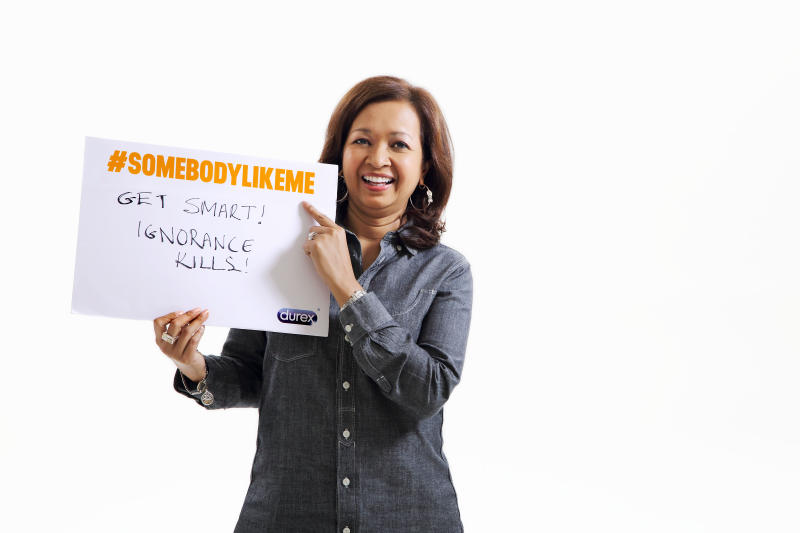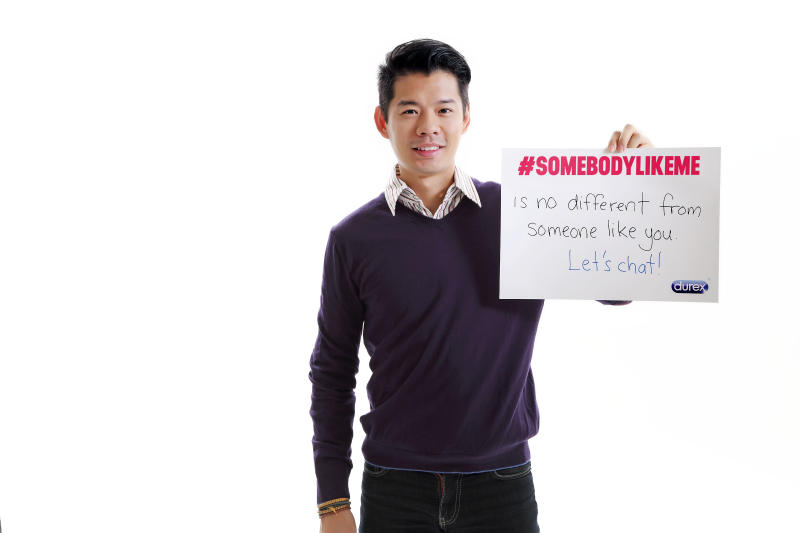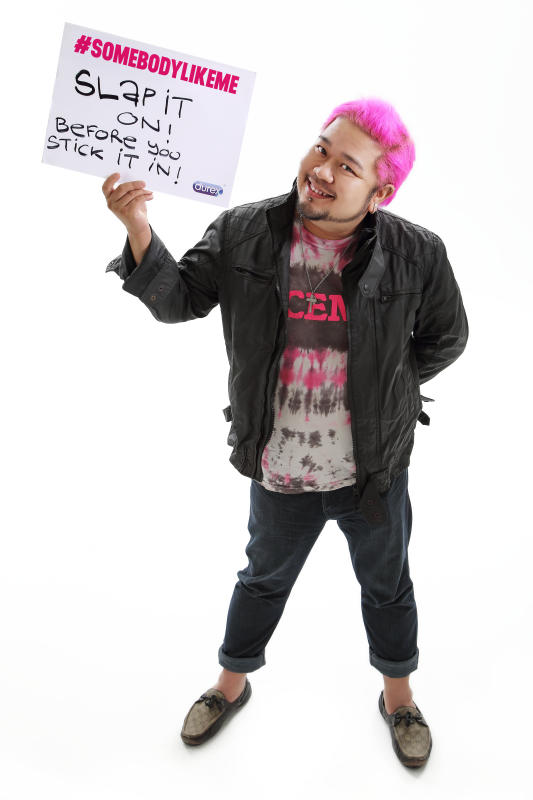By SHARMILA NAIR
alltherage@thestar.com.my
Rizal (not his real name) has been sexually active since he was 19. He has had multiple partners and it was only two years ago that he learned about the condom and its use in preventing sexually transmitted diseases. By then, he had already been diagnosed as HIV positive.
“I have seen condom packages on sale and wondered how they were used, but I didn’t think that I would be needing them for my lifestyle. The possibility of contracting HIV was the last thing on my mind,” said 33-year-old Rizal who was diagnosed with the virus in 2011.
And the only reason Rizal even took the HIV test was because a doctor suggested it after his chronic bouts of cough continued for several months. Otherwise, he would not have even considered it.
“I thought that I had tuberculosis but the doctor had different news for me. He told me I was HIV positive and I couldn’t believe it. I didn’t think that it would affect someone like me – a regular joe,” said Rizal who is currently a facilitator with PT Foundation, a community based non-profit making organisation providing HIV/AIDS education and support programmes.
Despite accepting his current condition, Rizal wishes that he had known more about HIV/AIDS when he was younger and believes that perhaps adequate knowledge on the subject would have prevented him from contracting the virus.
“In school, I learned about the reproductive systems and little bit on HIV. What they didn’t tell me was that it could happen to anyone … that it could happen to me,” he said.
According to the statistics provided by the Ministry of Health, the number of people living with HIV (PLHIV) in Malaysia last year was estimated at 81,209. In 2012, 3,438 new cases were reported and 31% of the new infections happened to those aged 13 to 29.
One of the main reasons offor the increase in new HIV cases is a lack of awareness on the topic, despite the disease being discussed for over 30 years now.
“There isa a growing perception among youths that HIV/AIDS will never happen to them. They are becoming increasingly non-communicative on the subject and this silence can hamper outreach efforts to raise awareness on the issue,” said PT Foundation acting executive officer Raymond Tai.
He also added that more often than not, it is only when a person is infected, or affected, that he or she starts educating themselves on the issue.
“But the education should begin earlier and it should be on-going, to prevent one being infected or affected in the first place,” said Tai.
Reaching out to youths
Alarmingly, 129 youths below the age of 19 were infected with the virus last year in Malaysia. They are now part of the estimated 34 million people living with HIV around the world. It is also unnerving to note that AIDS has become the second most common cause of death among 20- to 24-year-olds worldwide.
“The biggest misconception about HIV/AIDS is that most young people think that it only happens to ‘other people’. We call this the ‘Not-Me-Syndrome’,” said Tai.
In a bid to disprove the misconception, Durex Malaysia, in partnership with PT Foundation and AIESEC Malaysia, has launched #SomebodyLikeMe – a social media campaign aimed at encouraging and normalising HIV/AIDS-related conversations as well as empowering youths to make a stand towards a HIV/AIDS-free society.
“Despite the alarming figures, it is disconcerting to note that many young people are not equipped with sufficient knowledge and feel that HIV/AIDS is irrelevant to them.
“#SomebodyLikeMe seeks to challenge and rebut these presumptions as HIV/AIDS does not discriminate and can infect or affect anyone, including ‘someone like me’,” said Reckitt Benckiser Malaysia & Singapore marketing director Abhishek Chuckarbutty.
The campaign has enlisted several prominent social influencers to share their voice and stories online to spark the conversations online as well as to ignite change. Among the local social media influencers who have lent their support to the campaign are Datin Paduka Marina Mahathir, Niki Cheong, Joe Lee (aka KlubbKidd KL), Karena Cheow, Audrey Pui Yan, Hanie Hidayah and Christopher Tock.
Digital media consultant Niki Cheong said: “HIV/AIDS is preventable, yet even after all this time we have been unable to reverse the number of infections in most parts of the world. When it comes to sex – which is the core part of the message of this World AIDS Day campaign – there are still many cases where people are ignorant, complacent or worse, don’t really care.
“In Malaysia, in particular,we don’t have sex educationseducation in schools andas such so, we need to have effective campaigns to spread theawareness on the HIV/AIDS issue.”
The social influencers have already started the all-important conversation online, actively communicating on social media with their followers about issues surrounding HIV/AIDS using the hashtag #SomebodyLikeMe and engaging them to speak freely about it with their own peers.
Getting it right
Education is key in eradicating HIV/AIDS and Lai believes that young Malaysians are not equipped with adequate knowledge regarding the issue.
“They think that only ‘immoral people’ – like drug users or sex workers – get infected. The other misconception is that you can tell who is HIV-positive, so someone who looks good and healthy could not have the HIV virus in them,” said Tai.
He also added that most youths believe they wouldn’t contract the virus if they only have sex with one partner. “They think that it’s all right to not use a condom if they only have sex with their boyfriend or girlfriend.”
In 2011, 83% of HIV infections among Malaysian women occurred through unprotected heterosexual encounters. These figures only show that many young people are still in the dark when it comes to sex and do not have the necessary knowledge before pursuing an active sex life.
“Young Malaysians have been conditioned to refrain from talking about sex. Even if they do, it is at a general level. Few young people admit that they are sexually active let alone talk about it,” said Tai.
Hence Tai believes thatthe youths should “be able to have frank conversations with their partners before engaging in sex and continuously have open discussion” about the subject.
“I hope that young people will start talking about things that, in my opinion, they should be discussing in schools already. They need to have ownership of their bodies and educate themselves so that they can make informed decisions.
“It is not just about wanting sex and being safe but abstinence as well. But this has to be the individual’s choice and I hope that the conversations this campaign starts will contribute to this awareness,” said Cheong.
Speaking up
Although the campaign aims to educate young people on the issues regarding HIV/AIDS, Cheong believes that it could be used as an opportunity for adults to get involved, start listening to our youths and empower them to make the right and informed decisions.
“I think adults in general don’t give enough credit to young people so this is their opportunity to show that they know what they’re talking about and to ask questions about things they are unsure of. This campaign is offering a platform for young people to do just that,” said Cheong.
Youths have to arm themselves with the right knowledge, to take charge and be responsible and Tai believes that with enough encouragement, theyoung people could help eradicate HIV/AIDS in the years to come.
“We have acknowledged there are many challenges that have hampered the fight against HIV/AIDS; inadequate knowledge about its preventions, compounded by widespread stigmatisation and ignorance of the disease.
However, what kills a society is not the disease itself, but our silence.
“With each and every one actively contributing their voice to the #SomebodyLikeMe campaign, we hope to address these issues together and lift our shroud of silence, ignorance and fear to ensure more effective education and communication.”
To learn more about the campaign, visit
facebook.com/DurexMalaysia.




Tell us what you think!